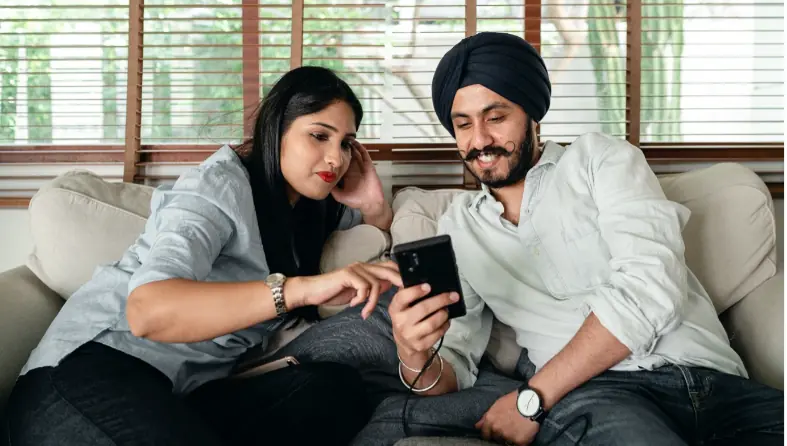Coping after a failed IVF transfer
Emotional Support, IVF, IVF Failure
Coping after a failed cycle is devastating, and you grieve for the loss. A loss of hope, a loss of a precious embryo and the loss of future life that you had planned out in your mind.
A negative result can leave you with lots of questions around why it didn’t work, is there anything I could have done differently, what are the next steps, when can I start again, what can we do differently. Unfortunately, the assisted conception units are busy, and it can seem like forever until you can have a follow up appointment to get answers.
It is difficult having to wait for even more time, whilst dealing with the emotions of IVF not working. I felt lost and that there wasn’t any form of support after the result – no one else seemed to understand why I was so upset; I was grieving the loss of my embryo and the future life it had represented.
It took a long time to get over it. Eventually I picked myself up and did what I could to move forward, so I wanted to share some ideas that may help you in the same situation:
Coping after the result
- Allow yourself time to grieve. Its ok to feel sad, it’s perfectly normal so don’t fight it if you do. If this continues for a while and you are frequently feeling depressed, it is worth speaking to a counsellor for some additional support.
- Take care of yourself. Take some time out to look after yourself emotionally and physically. Do something that you enjoy that will help you relax and feel nice. Make time for things that recharge your batteries and make you feel stronger emotionally.
- Take some time out with your partner to talk about how you are both feeling after the result. What you would like to do next and what you would like to find out. Use the time to connect and support each other.
- Plan in some nice things to do with your close circle – your partner, your family, your close friends. This will give you something to look forward to, and means you get to spend quality time with those people that you love. Choose people that are supportive so that they are not a negative drain on you, or not understanding of why you are upset.
- Attend support group meetings or join an online group. You will be supported by other lovely people that know exactly what you are going through.
- Ask questions. Get answers to all your questions so you can feel fully informed and able to make decisions about you next steps – whether that be another round of IVF, some time out from the intensity of fertility treatment or investigating other routes to parenthood.

This Is How You Choose The Best IVF Doctor
Questions to ask after a failed cycle
“IVF was my back up plan, when it wasn’t happening naturally, I assumed IVF would work and that I would have a baby. You pin all your hopes on it working, so when it doesn’t you don’t know what to do next. We look for explanations as to why it failed to help us process it and cope.”
If we get an answer, it makes us feel better, because if we know the reason it failed, we feel we can make changes next time.
On the medical side there may be changes that can be made based on learnings from this cycle, but there are also questions you can ask yourself to help you recover and move forward.
Some questions to think about after you have had a failed cycle:
What am I pleased that I did during this round?
- It could be healthy eating, extra sleep, add on treatments, counselling/coaching, going to a support group, acupuncture, time off.
- Think about what it is that helped you feel better going through the treatment, either physically or emotionally, so you can replicate the good things if/when you have another cycle.
What will help me recover from the failed cycle?
- Look at how you have previously recovered from a great loss or upset, there may be something you have done previously, that helped you cope, that you could use now
“Seeing friends, time out to yourself, journaling, meditation. Remember that its ok to grieve, to take time to yourself and to do what you need to do to get through this time.”
- Use your support network and things that you know work for you. Support groups are great for providing advice, comfort and support from others who understand how you feel.
What can we learn from this failed cycle?
And based on this information, what can we do differently the next time to increase our chances of success?
- Make sure you go to your follow up appointment armed with questions so you can find out if there is anything you can do differently next time to improve the chances of success (different medication, higher dosage, different protocol, add on treatments).
- Talk them through with your consultant who will be able to advise based on your specific circumstances.
- Remember that this isn’t about placing blame on yourself or the clinic, it’s about looking for positive changes you could make to feel like the outcome could be different and that you’ve done all you can to help increase your chances.

IVF Preparation Program For IVF Success
Do we need to take a break from treatment?
- It can be tempting to want to get straight back in to your next cycle (I was the same!) as it feels like every month counts, but it is important to allow yourself time to recover so you can be fully prepared emotionally and physically for your next cycle or to make decisions on going forward.
- Talk it through has a couple and work out what is right for you in your personal circumstances, only you two can decide what is best for you.
Must Read: Emotional Wellness
“It may feel like you are alone, but you’re definitely not”
About The Author
 Sarah set up and runs two online Fertility support communities, regularly supporting over 4,000 patients, and hosts two local support groups to provide emotional support for those in need. For people staying in UK, you can join her facebook support group called TTC Support UK.
Sarah set up and runs two online Fertility support communities, regularly supporting over 4,000 patients, and hosts two local support groups to provide emotional support for those in need. For people staying in UK, you can join her facebook support group called TTC Support UK.






Your Comment Is Valuable For Us
Thanks For Your Feedback.